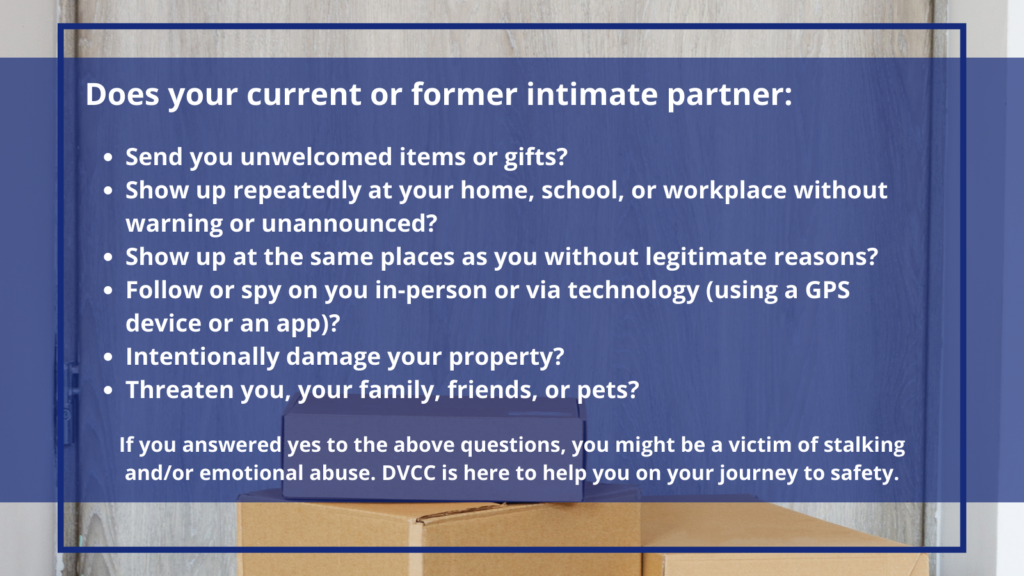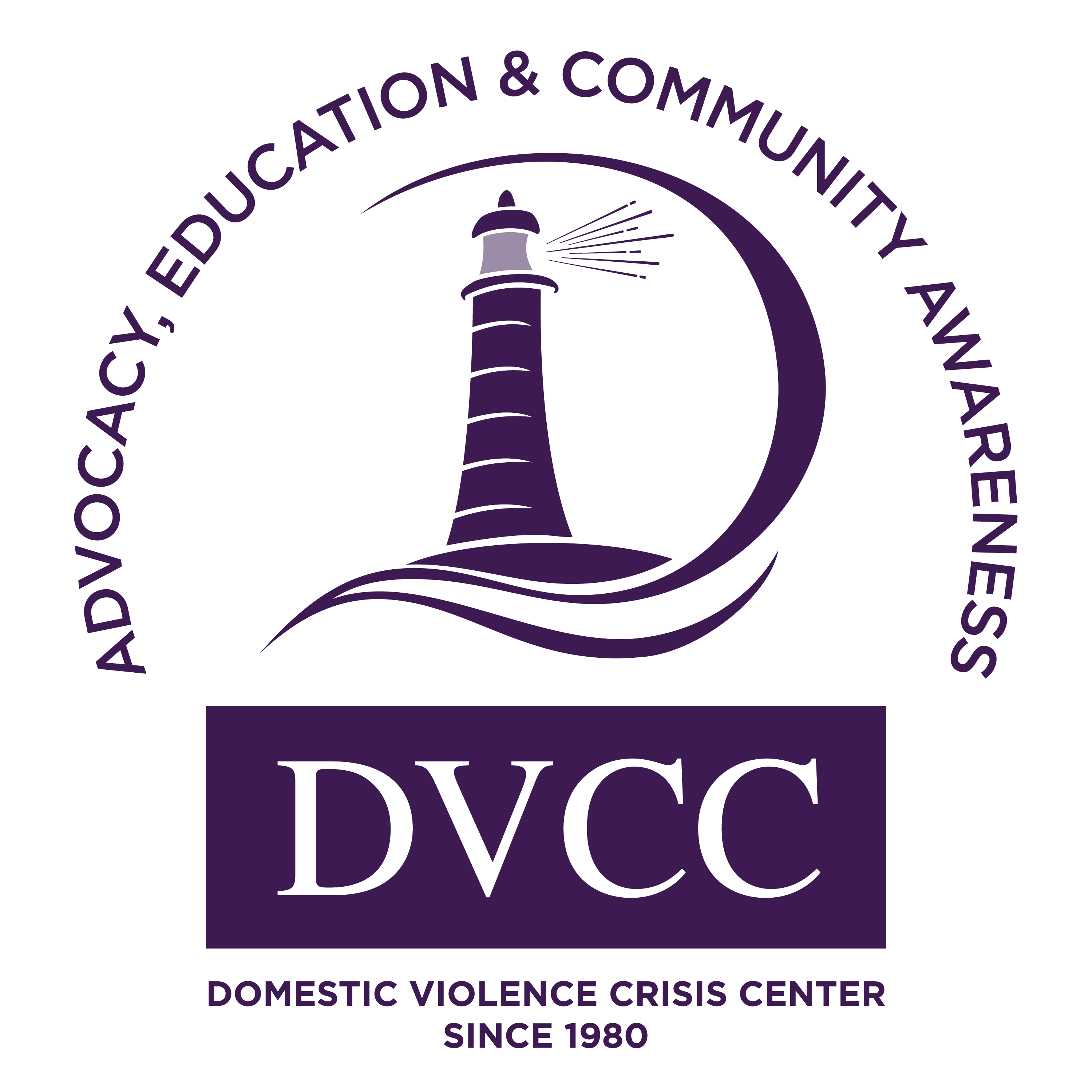Know it. Name it. Stop it.
What is stalking?
Stalking is a serious issue affecting more than six million people each year. It can be a terrifying crime for those who experience it, and it is often one of many tactics that abusers use in order to maintain power and control over a current or former intimate partner. Being stalked by an intimate partner is a crime.
The US DOJ defines stalking as “engaging in a course of conduct directed at a specific person that would cause a reasonable person to fear for [their] safety or the safety of others or suffer substantial emotional distress.”
Stalking Increases Lethality in Domestic Violence
When domestic violence victims experience both physical abuse and stalking behaviors, the risk for homicide is increased. 76% of all domestic violence homicide victims had also been stalked in the year before their murder. If you or someone you know is experiencing domestic violence including stalking, call or text our 24-hour hotline at (888) 774-2900. Advocates are here to help and support you.
Effects of Stalking Behaviors on Victims
- Job loss and/or changing jobs due to stalking behavior.
- Feeling trapped in their own home and fear of leaving their home
- Relocating and moving in secret
- Fear, humiliation and/or depression
- Distrust of others
“Going to work, attending my kids’ activities, going out for the evening…these things seem routine. For me they’re terrifying because I never know what he will do or when he will show up.” — Stalking survivor
How to Identify Stalking…
Many behaviors that are often described as “emotional abuse” are also stalking behavior. Often, victims and service providers do not identify the behavior as “stalking” when it happens during a relationship. The constant contact, surveillance and threats that may be part of an abusive relationship are also stalking behaviors. Stalking is a crime.

Get connected…create a safety plan.
Studies show that when victims are connected with professional services and support, they have better outcomes. DVCC advocates can help with safety planning. While victims cannot control the stalking behavior, they should feel empowered to take steps to keep themselves, their families, and their loved ones safe.
A safety plan is a plan to reduce risk when faced with the threat of harm or actual harm. These are possible steps victims/survivors can take to increase their safety when experiencing stalking by an intimate partner. Everyone’s safety plans will be different based on their unique risks and rewards.
- Change your routines as to not create a routine that your abuser can follow. With this in mind, your safety plan should always be changing.
- Inform family and friends.
- Consider reporting to the police.
- Consider getting a restraining order.
- Call DVCC’s Attorney Advocate to discuss the risks and limits of restraining orders.
- Keep a log of all stalking incidents, including date, time, location, type of incident, and witnesses.
- Keep all evidence, including letters, emails, voicemails, and gifts received from abuser.
- Consider using CT’s Address Confidentiality Program: Safe At Home.
- Increase your security at home. See “Safety in Your Home” in our safety planning document, here.
DVCC is here to help victims interested in developing a personalized safety plan. Please reach out to us for help and support, you are not alone.
